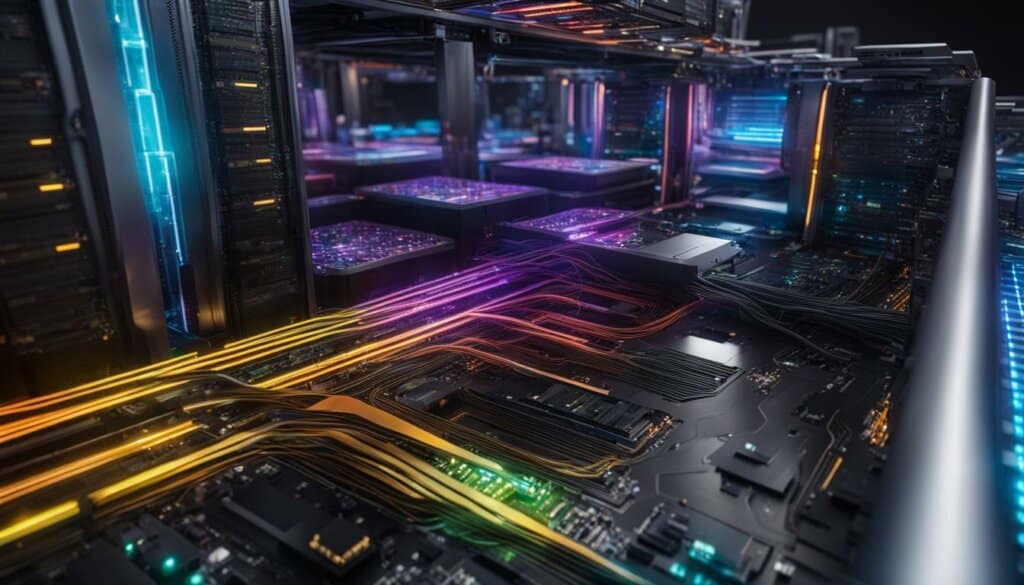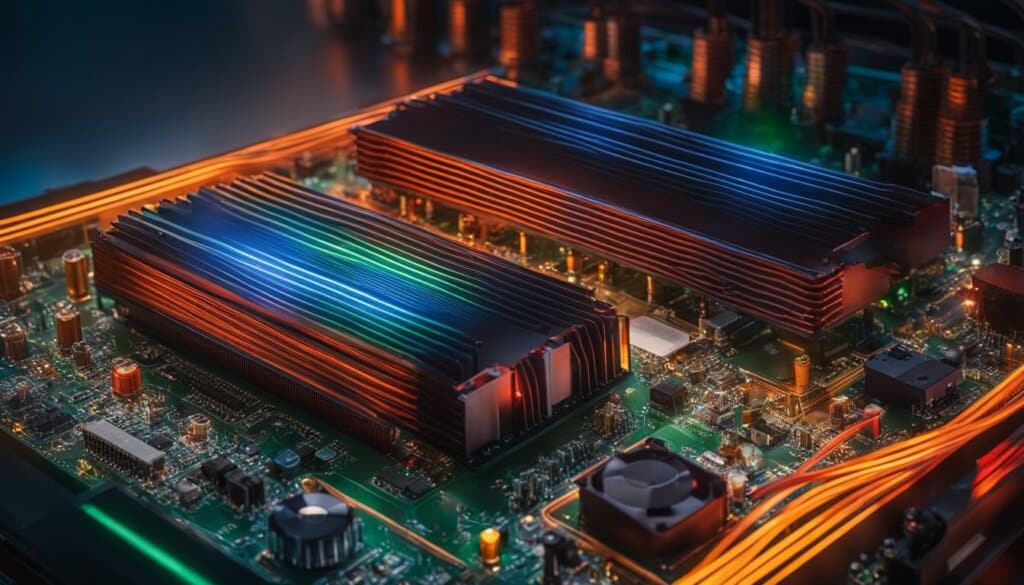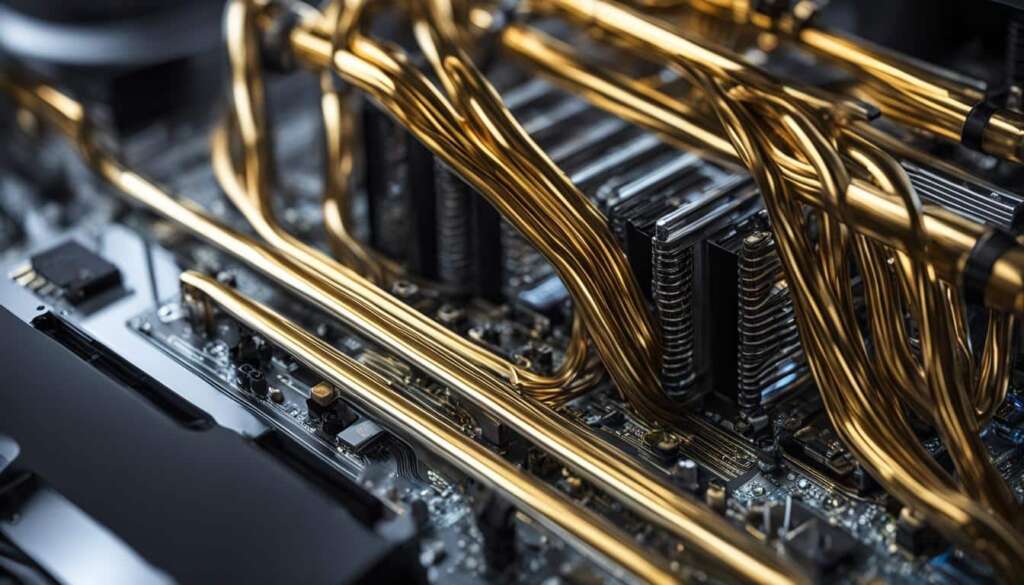Table of Contents
High Performance Computing (HPC), also known as supercomputing, is a game-changer in the world of computing. It enables organizations and researchers to tackle complex problems that were once deemed impossible. HPC harnesses the power of multiple processors working in parallel to process vast amounts of data and perform calculations at an astonishing rate.
HPC has numerous applications across various industries, including scientific research, engineering, finance, healthcare, and entertainment. It plays a critical role in enabling breakthroughs and driving innovation in these fields.
The architecture of HPC systems typically consists of interconnected computing nodes, forming clusters that work together to perform complex tasks. These systems often utilize specialized hardware, such as GPUs, to optimize performance. HPC techniques, such as parallel computing and distributed computing, allow for efficient processing and speedy execution of tasks.
Despite its many benefits, HPC does come with its fair share of challenges. Building and maintaining HPC systems can be costly, and programming for these systems requires specialized skills. Additionally, optimizing and debugging code for HPC systems can be more complex than traditional computing.
However, the rewards of leveraging the power of HPC far outweigh the challenges. It continues to be instrumental in advancing research, powering industries, and solving intricate problems. As technology evolves, the demand for HPC is set to grow, ushering in a future of endless possibilities.
The Applications of High Performance Computing
High Performance Computing (HPC) has a wide range of applications across various industries. In scientific research, HPC is used to simulate complex physical and biological systems, such as the behavior of subatomic particles or the folding of proteins. HPC is also used extensively in engineering and design applications, particularly in the aerospace and automotive industries, where it is employed to perform simulations of aerodynamic flows, crash tests, and other intricate engineering tasks.
In the finance sector, HPC is utilized for analyzing complex financial data and simulating the behavior of financial markets. In healthcare, HPC plays a crucial role in analyzing patient data and developing new medical treatments. The entertainment industry also heavily relies on HPC to create and render complex graphics and animations for movies and video games.
HPC has become indispensable in scientific research, engineering, finance, healthcare, and entertainment. Its computational power enables researchers, engineers, and professionals in various fields to tackle complex problems, make accurate predictions, and drive innovation.
How High Performance Computing Works
High Performance Computing (HPC) systems are composed of various components, including servers, processors, memory, and storage systems. These components are interconnected through high-speed networks, creating a cluster of computers that collaborate to perform computational tasks.
HPC systems employ parallel computing techniques to divide complex tasks into smaller subtasks, enabling simultaneous processing. This approach greatly reduces the time required for executing intricate tasks compared to traditional computing systems. The processing power of HPC systems is measured in FLOPS (Floating Point Operations Per Second), with the capability of performing trillions of FLOPS per second. To optimize performance, HPC systems leverage specialized software and hardware, such as parallel file systems and accelerators like GPUs or FPGAs.

Parallel computing allows multiple processors to work together on a problem, breaking it down into smaller, more manageable tasks that can be processed simultaneously. This parallel processing significantly enhances the performance and efficiency of HPC systems, enabling them to tackle complex computations and simulations efficiently. Distributing the workload across multiple processors also reduces the overall time required to complete tasks, providing faster results.
In addition to processors, memory plays a critical role in HPC systems. Large amounts of memory enable efficient data processing and storage, allowing HPC systems to handle massive datasets and complex algorithms. Efficient storage systems are essential for managing and accessing the vast amounts of data involved in HPC applications.
The architecture of HPC systems is designed to maximize performance and scalability. By combining powerful processors, ample memory, and high-speed interconnections, HPC systems can deliver exceptional computing capabilities for a wide range of applications.
Overall, HPC systems enable researchers, scientists, and engineers to solve complex problems that were once considered infeasible. These systems have become indispensable in fields such as scientific research, engineering, finance, healthcare, and entertainment, driving advancements and innovation across various industries.
High Performance Computing in Industries
High Performance Computing (HPC) plays a crucial role in various industries, leveraging its immense computational power to drive innovation and solve complex problems. Let’s explore how HPC is applied in key sectors:
Aerospace Industry
In the aerospace industry, HPC is instrumental in conducting aerodynamic simulations, optimizing aircraft design, and analyzing structural integrity. For example, HPC enables engineers to evaluate the performance of various aircraft configurations and refine designs to enhance fuel efficiency and reduce drag. HPC also aids in spacecraft optimization, enabling researchers to simulate and analyze spacecraft trajectories, ensuring mission success.
Automotive Industry
HPC plays a vital role in the automotive industry, supporting vehicle design optimization, crash simulations, and the development of advanced driver-assistance systems (ADAS). With HPC, automotive engineers can simulate and analyze crash scenarios, optimizing safety features and improving the overall structural design. Additionally, HPC enables the development and testing of sophisticated ADAS technologies that enhance vehicle safety and autonomous capabilities.
Energy Industry
The energy industry relies on HPC to tackle complex challenges such as oil and gas exploration, renewable energy research, grid optimization, and building design. HPC facilitates detailed simulations that aid in oil and gas exploration, assessing potential drilling sites and optimizing extraction methods. In the realm of renewable energy, HPC enables researchers to analyze and model wind patterns, design efficient solar panels, and optimize the integration of renewable energy sources into existing grids. Furthermore, HPC assists in grid optimization, simulating and optimizing energy distribution and demand management for greater efficiency. HPC also contributes to building design through energy simulations that optimize heating, cooling, and energy consumption in architectural projects.
Healthcare Industry
HPC plays a critical role in the healthcare industry, supporting genetic analysis, drug discovery, medical imaging, and disease modeling. With HPC, geneticists can analyze vast amounts of genomic data to identify disease risk factors and potential treatments. HPC also powers drug discovery by simulating molecular interactions, predicting drug efficacy, and enabling virtual screenings. In medical imaging, HPC enhances the speed and accuracy of image processing, aiding in the diagnosis and treatment planning of various conditions. Moreover, HPC enables researchers to model and simulate the progression of diseases, supporting the development of personalized treatment strategies.
Entertainment Industry
Within the entertainment industry, HPC plays a vital role in rendering complex graphics, creating stunning visual effects, and facilitating content distribution. HPC enables animators and visual effects artists to generate realistic visuals and intricate animations by quickly processing enormous amounts of data. Additionally, HPC supports content distribution by optimizing streaming services, ensuring smooth playback and delivering high-quality media experiences to audiences.
High Performance Computing (HPC) makes a significant impact across multiple industries, empowering researchers, engineers, and innovators to overcome challenges and achieve remarkable advancements. By harnessing the computational power of HPC, industries can drive efficiency, innovation, and transformation. The potential of HPC applications in these sectors is immense, opening doors to new possibilities and driving future growth.
Challenges and Considerations in High Performance Computing
High Performance Computing (HPC) presents a unique set of challenges that organizations must address to harness its full potential. One significant challenge is the cost associated with building and maintaining HPC systems. These systems require specialized hardware and expertise, leading to substantial upfront and ongoing expenses.
Furthermore, programming for HPC systems introduces another layer of complexity. Parallel programming and distributed computing techniques must be leveraged to fully utilize the processing power of these systems. This necessitates expertise in optimizing and debugging code, which can be more challenging than traditional computing systems.
To compound matters, HPC systems have demanding power and cooling requirements. The immense computational capabilities of these systems generate significant heat that must be managed efficiently to prevent thermal-related issues. Effective thermal management is crucial to ensure system stability and longevity, but it adds to the overall cost of operation.
Despite these challenges, organizations can overcome them through careful considerations. Firstly, implementing cost-effective strategies and evaluating the return on investment can help mitigate the financial burden of HPC systems. Secondly, utilizing specialized hardware, such as accelerators like GPUs or FPGAs, can enhance performance and optimize power consumption. Additionally, optimizing programming techniques for parallel computing and investing in programming tools and frameworks can facilitate code development and debugging.
Lastly, proactive thermal management strategies, such as advanced cooling techniques and airflow optimization, can help mitigate heat-related issues and improve overall system efficiency. By addressing these challenges and considerations, organizations can fully leverage the power of HPC and drive innovation in their respective fields.

Conclusion
High Performance Computing (HPC) has revolutionized research and industry, providing a powerful tool for solving complex problems and driving innovation. The ability of HPC systems to perform high-speed calculations and simulations has enabled breakthroughs in various fields.
Despite the challenges associated with HPC, such as the cost and complexity of building and maintaining these systems, the benefits they offer far outweigh the costs. HPC will continue to play a critical role in shaping the future of research and industry, as it has the potential to solve some of the most pressing challenges we face.
With ongoing technological advancements, the demand for HPC is expected to grow. This growth will further accelerate progress in multiple sectors, opening up new possibilities for scientific discoveries, engineering advancements, financial analysis, healthcare research, and entertainment.
In conclusion, high performance computing is a transformative technology that holds immense potential for the future. As researchers and industry leaders continue to harness the power of HPC, we can expect to see remarkable advancements, groundbreaking innovations, and profound benefits across a wide range of domains.
FAQ
What is High Performance Computing (HPC)?
High Performance Computing (HPC) is the use of powerful computer systems to solve complex problems that would be difficult or impossible to solve using traditional computing resources.
How does High Performance Computing work?
High Performance Computing systems are composed of clusters of interconnected computing nodes, each containing multiple processors or cores. These nodes are connected by high-speed networks that enable communication between them. HPC systems use parallel computing techniques to divide complex tasks into smaller subtasks that can be processed simultaneously.
What are the applications of High Performance Computing?
High Performance Computing is used in various industries, including scientific research, engineering, finance, healthcare, and entertainment. It is used for simulations, data analysis, optimization, and complex calculations in these fields.
What are the challenges in High Performance Computing?
Some challenges in High Performance Computing include the cost of building and maintaining HPC systems, the complexity of programming for these systems, and the power and cooling requirements of the systems.
What is the future of High Performance Computing?
High Performance Computing will continue to play a critical role in shaping the future of research and industry, driving innovation and solving complex problems.












